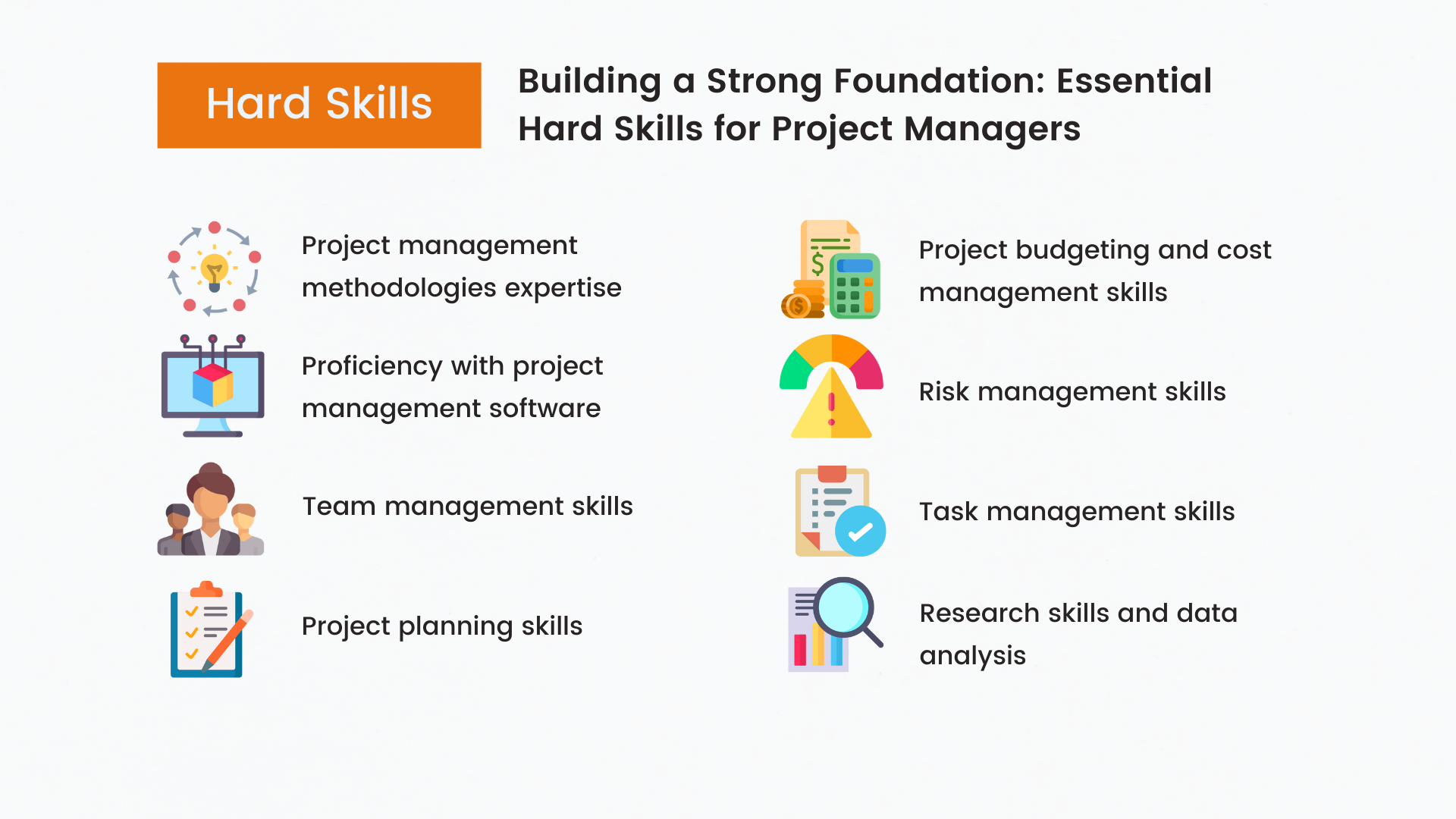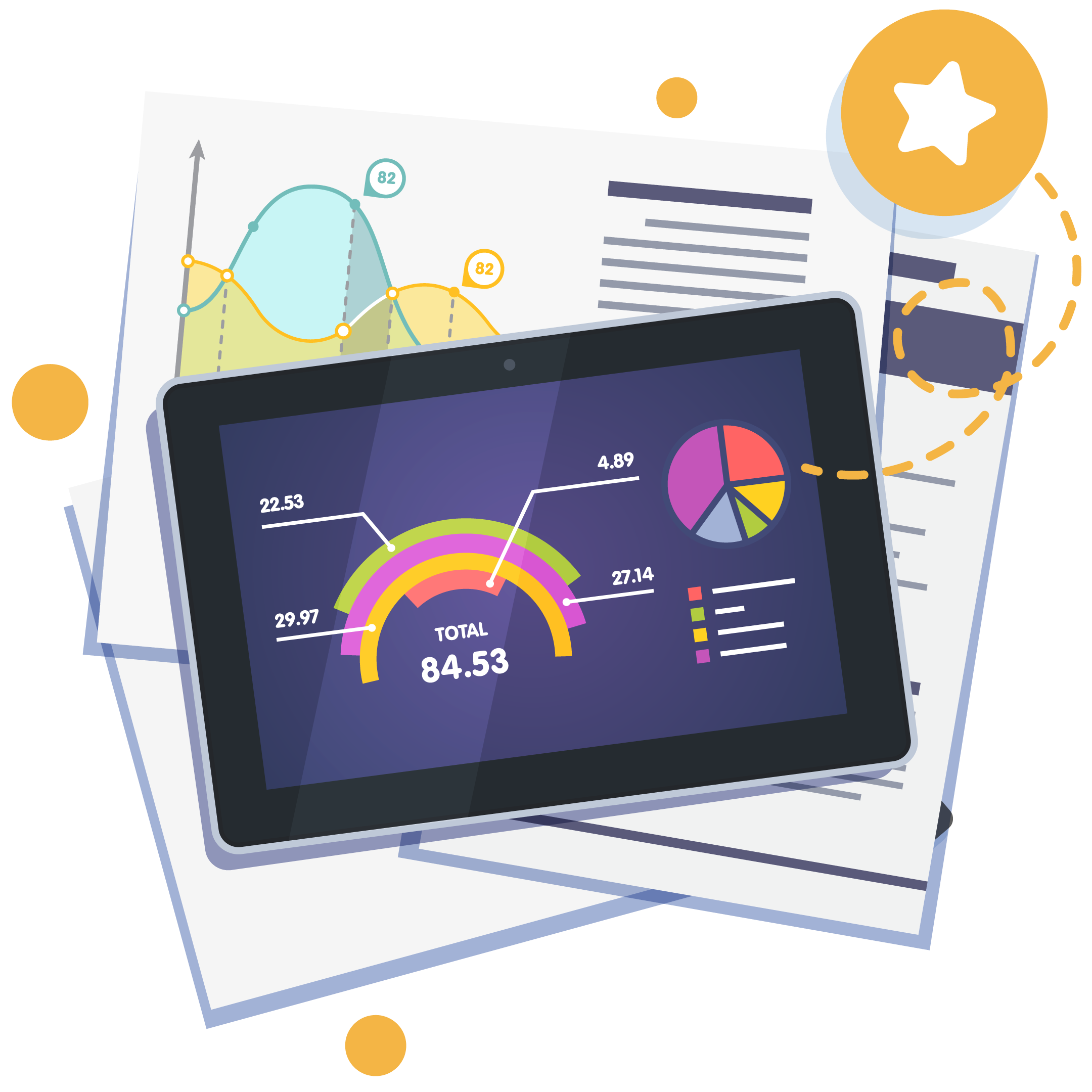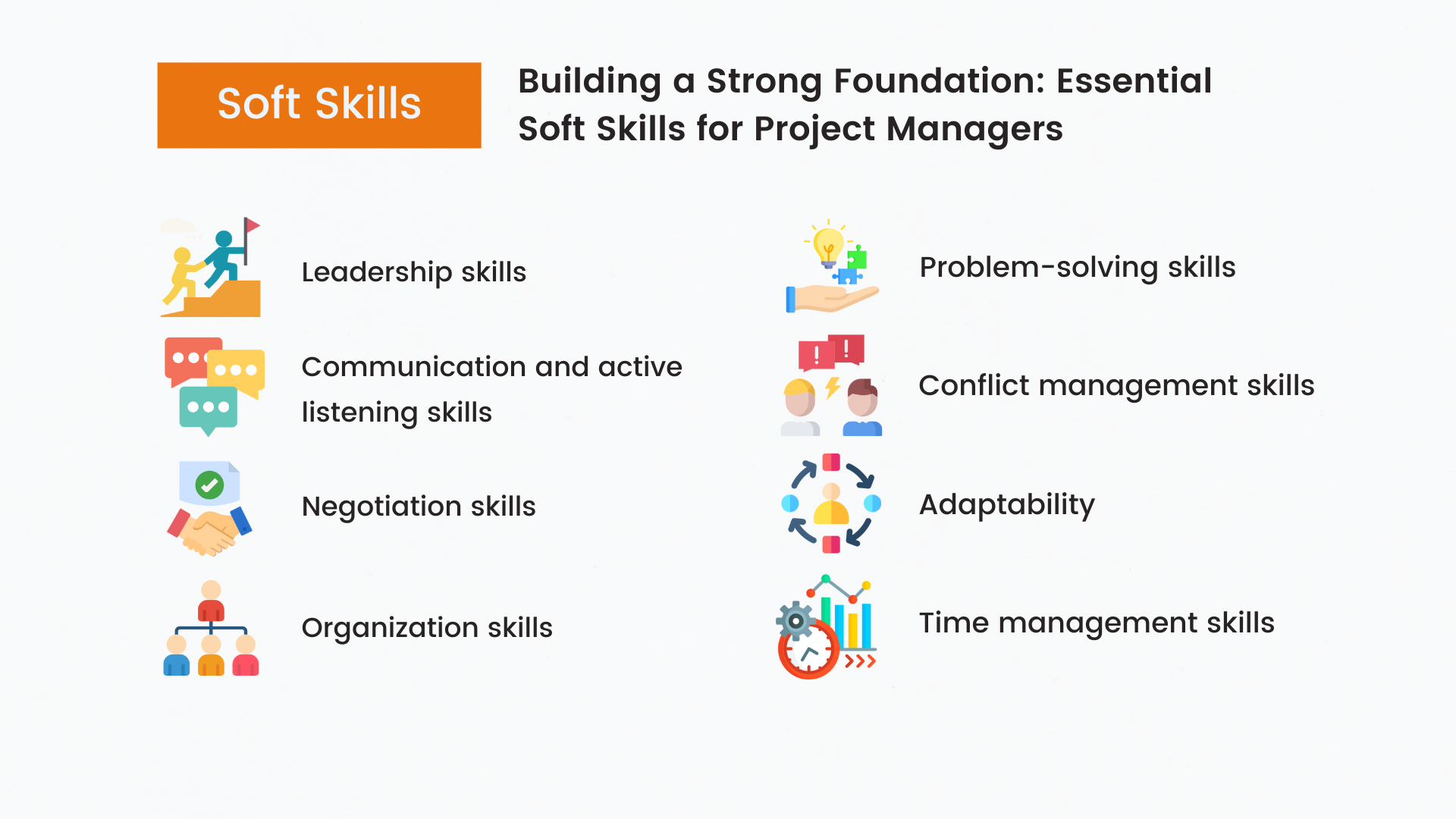
Have you heard of the coveted position of ‘project manager’? If you have spent time in the corporate world, the answer to that question is a resounding YES! The hype around the role is understandable; who doesn’t want to take sole ownership of a high-stakes project and deliver it to perfection? There is no shortage of opportunities either! As per the Project Management Institute’s estimate, there will be a 33% increase in project management roles, meaning that almost 22 million new jobs will be created for project managers with the required skills!
We have compiled a list of essential skills for project managers that you need to get yourself the career you deserve. What more? Read on to find the best ways to acquire and perfect these skills!
Let us start with the basics.
What is Project management?
According to the Project Management Institute, “Project management is the use of specific knowledge, skills, tools, and techniques to deliver something of value to people.” Thus it includes anything like introducing a new product, constructing a new building, developing new software for your company, and so on.
What are the roles of a Project Manager?
A project manager handles everything related to the project and is responsible for planning, procurement, execution, and completion of the project. They must run the day-to-day operations and manage the entire project team and the assigned resources.
So now that we understand why the role is quintessential let us explore the skills for project management.
Also Read: Business Process Management – The What, Why, and How
What are the essential skills for Project Managers?
The skills for project management can be classified into two – hard skills and soft skills. The hard skills include the technical skills that a project manager should have. You can get these skills through training and education, and they can be added to your repertoire!
As for soft skills, these are the skills that are innate and a part of the project manager’s personality. Honing and developing these skills through experience will put you on the right path to becoming an excellent project manager.
Project Management Hard Skills

Hard skills are like tools in a project manager’s toolbox – the technical abilities and specialized knowledge that enable them to do the job efficiently and effectively.
1. Project management methodologies expertise
The product management methodologies vary with the industry and often require certification. So it would help to learn the methodologies used in your field of interest. Some methodologies, like Agile, waterfall, SCRUM, etc., are standard and a great place to begin.
2. Proficiency with project management software
Project managers often use project management technical skills to amplify their performance. A critical part of the job is determining which software will work best for the given project and the team, and for this, the project manager needs to know the various Project Management and Workflow Automation tools out there.

3. Team management
A huge part of project management comes down to managing the team. Understanding the team dynamics and ensuring that the team morale is high is critical for the project’s success. Having a knack for this is an essential skill in a project manager.
4. Project planning skills
One of the critical responsibilities of a project manager is project planning. This is the project’s foundation and determines the resources required, the timeframe for various stages, and the processes needed for successful completion. Optimizing this will help in cost and time management and lays the groundwork for the successful completion of the project.
5. Project budgeting and Cost management skills
This is a critical element in project planning. Once you estimate the budget, it is vital to understand and plan where this budget will be utilized. The costs across each project stage need to be tracked and optimized. This will ensure that the actual charges are within the budget. Thus time management, project planning, and project budgeting work together to ensure success.
6. Risk management skills
This is one of the top skills for project managers, and it will help you take calculated risks. Risks are inevitable if any project is undertaken. Also, you must have the talent to identify the risk, understand its possible impact, and devise ways to contain or mitigate the effects. Confidence and clarity are crucial and irreplaceable for a successful project manager because your team will rely on you.
7. Task management skills
A project, however huge, needs to be broken down into minor tasks that can be tackled. As a project manager, you will be expected to create these tasks throughout the execution phase of the project. These need to be organized and assigned to different team members, along with deliverables and deadlines. Understanding the sequence, the right team member to handle a task, and the other necessary things like the available budget and time must be well managed; this will come down to the project manager’s skills.
8. Research skills and Data Analysis
We are in an era with abundant information; thus, gathering relevant information becomes an essential skill. This skill will help bridge the knowledge gap and give the PM the required edge to succeed in the project.
Apart from research skills, a project manager needs data analysis skills. Throughout the course of the project, the PM will have to deal with vast volumes of data. Data analysis becomes crucial while calculating the costs, return on investment, and budgeting. This also comes in handy while analyzing the project’s progression, team performance, and expenses. Data can lead to critical insights; therefore, having the skill to interpret them will go a long way!
One of the innovative ways to do that is with the help of no-code technology! No-code platforms have emerged as a game-changing technology that can help project managers build and deploy applications without coding. With the ability to rapidly develop and customize applications, no-code is becoming an essential tool for project managers who would want to streamline their workflow, increase efficiency, and improve collaboration with their teams.
Also Read: Top 10 Business Process Management Tools for Your Business
Effective Project Management Soft Skills
Soft skills are like the secret sauce of a successful project manager – they are the interpersonal and behavioral qualities that allow them to connect with their team and stakeholders, navigate tricky situations, and lead with empathy and emotional intelligence.

1. Leadership skills
As much project management involves working with and managing a team, leadership skills become essential for a PM. A good project manager can lead, inspire and motivate the team members. Establishing authority based on skill and credibility will ensure the team looks up to you and is willing to listen and follow your lead. This is essential for assigning, coordinating, and completing the jobs on time.
2. Communication & active listening skills
Possessing excellent communication is deemed to be one of the most critical aspects of mastering project management skills. According to Cesar Abeid, who is the host of the podcast “Project Management for the Masses,” it is known that project managers spend 90 percent of their time communicating. Whether you are talking to your team or the clients, it is necessary to articulate what you want to say and convey it.
Great communicators know how to build relationships with the team and motivate and resolve any conflicts that arise.
Active listening skills go hand in hand with good communication skills. You need to understand the project’s scope, the plan, and any issues the stakeholders face; for this, active listening must be developed.

3. Negotiation skills
Coming up with solutions that are beneficial to all stakeholders involved is a skill that a PM must possess. Negotiating terms, budgets, and deadlines is crucial for the smooth progression of a project. Effective project management skills will let them influence all the players involved and ensure the successful completion of the project.
4. Organization skills
When large projects are considered, it becomes vital to correctly organize the vast amount of data to be used later. Organizations think this to be an essential skill to be a project manager. This also involves prioritization. Prioritization is essential and should be based on the task’s impact on the rest of the project. Project managers will be key decision-makers, and having the skills to prioritize correctly will go a long way in ensuring the successful completion of a project.
5. Problem-solving skills
While working on a project, no matter how well-planned, there are chances of encountering obstacles. When this happens, it is contingent on the project manager to handle the situation successfully and avoid any negative impacts on the project. They must come up with alternatives and make decisions based on the advantages and disadvantages of the options to ensure the best outcome. Thinking outside the box and developing innovative solutions are vital skills.
6. Conflict management skills
Conflicts often occur because people from different backgrounds and personalities work together. If not addressed, this will become a problem and negatively impact the project’s progress. To avoid this, the project manager must be able to detect and resolve conflicts so that there is no tension and the parties involved are satisfied. Maintaining a team with good rapport is essential for their successful working.
7. Adaptability
As a project manager, you will deal with different environments and scenarios. In these situations, you need to be flexible and change how you work wherever necessary to deliver the project. It might involve bridging the knowledge gap, learning new project management tools and technologies, understanding industry trends, and staying ahead of the curve. Being open-minded in your approach becomes an essential skill here.
8. Time management skills
Managing one’s own time and others’ is essential when delivering a project. If the time is not well maintained at every stage of the process, it can lead to overshooting of the budget and wastage of resources in human resources or otherwise. Thus, adhering to deadlines and accomplishing tasks within given time frames is an important skill to hone.
Also Read: Project Management Simplified for Non-Project Managers
Industry-Specific Project Management Skills
While core project management skills like leadership, communication, and organization remain crucial across the board, certain industries might require additional, nuanced skillsets for success. Here’s a brief overview of potential variations in skillsets for five different industries:
Core skills remain essential across industries, but some require additional expertise:
- IT
- Understand basic programming concepts
- Manage risk (security, data breaches)
- Be Agile methodology proficient
- Construction
- Manage budgets and costs
- Comply with regulations (building codes, safety)
- Manage diverse stakeholders effectively
- Marketing
- Analyze marketing data (impressions, engagement)
- Collaborate effectively with creative teams
- Manage and evaluate marketing campaigns (social media, email)
- Healthcare
- Ensure compliance with regulations (HIPAA)
- Manage diverse stakeholders (medical professionals, patients)
- Manage budgets efficiently
- Event Management
- Manage logistics and operations (timelines, budgets, vendors)
- Mitigate risks (weather changes, equipment failures)
- Manage event budgets effectively
These are just a few examples, and the specific skillset required for a project manager will depend on the industry, project complexity, and organizational needs.
Also Read: 5 Ways to Drive Process Improvement in Your Organization
How to develop the skills of a Project Manager?
Now that we have seen the necessary skills let us know how these skills can be developed.
One of the ways the skills can be acquired is by taking up a certification course. This will also set you on the right track as a project manager. Apart from this, you can also attend industry events and workshops, giving glimpses into what awaits you in project management.
Finally, Developing all skills requires practice. The next time you are presented with the opportunity to develop any of these skills, whether your communication skills or being more adaptable, take it as a challenge and try to create them. If you are already in the field, practice these skills daily. If not, you can still seek opportunities that will benefit you in building the skills to break into project management!
Sharpen Your Skills: Tips for Aspiring and Existing Project Managers
Continuous learning is key
- Pursue certifications (PMP, PRINCE2)
- Explore online courses, resources, and industry publications (including NC/LC applications)
Seek guidance and connections:
- Connect with experienced project managers, including those using no-code low-code tools
- Join professional organizations and communities to learn from peers and expand your network
Practice and apply your knowledge:
- Volunteer, take on additional project responsibilities, or use NC/LC tools in personal projects
- Seek feedback and reflect on your approach, including your use of no-code low-code technology
Develop essential soft skills:
- Communication, active listening, leadership, problem-solving, organization, and time management
Embrace technology and tools:
- Explore project management software and NC/LC options
- Utilize productivity tools and explore NC/LC alternatives that integrate seamlessly
Leverage NC/LC technology:
- Identify areas where NC/LC can benefit your workflow (repetitive tasks, communication, data)
- Start small and experiment before integrating into larger projects
- Invest in user training if implementing NC/LC solutions within your team
By actively engaging in these strategies, project managers can continuously develop their skills and become more effective leaders.tunesharemore_vert
Conclusion: Efficiency is the Key
Project management skills are vital for delivering successful projects that meet or exceed stakeholder expectations. By sharpening the top 16 project management skills, including effective communication, leadership, time management, problem-solving, emotional intelligence, adaptability, collaboration, decision-making, attention to detail, and conflict management, you can enhance your project management competencies and improve your chances of achieving project success. In today’s rapidly evolving business landscape, honing your project management skills is essential for staying competitive and delivering value to your organization. So, take the time to invest in developing and refining these critical skills, and you’ll be smooth sailing your way to becoming a skilled and successful project manager.
Quixy is no-code project management tool that will help your business to automate tasks and take your project management skills to the next level. Begin your journey towards streamlined operations and tailored apps – all with the simplicity of our platform. Get started today to harness the potential of automation.
Frequently Asked Questions(FAQs)
Q. What Are Project Management Skills?
Project management skills are a set of competencies that enable professionals to plan, execute, and oversee projects effectively. They include leadership, communication, time management, problem-solving, and organizational abilities.
Q. Why Should I Sharpen My Project Management Skills?
Sharpening project management skills ensures you stay competitive in the job market, enhances your ability to lead teams, and improves project outcomes. It boosts your career prospects and contributes to successful project delivery.
Q. How Do I Determine Which Skills to Prioritize?
Prioritize project management skills based on your current role, industry, and career goals. Assess which skills are in demand and align with your projects’ needs. Consider feedback from mentors and peers for guidance.
Q. What Are the Benefits of Enhancing Project Management Skills?
Enhancing project management skills leads to improved project success rates, career advancement opportunities, increased earning potential, better team collaboration, and the ability to tackle complex projects confidently. It’s a valuable investment in your professional growth.
Q. How Can I Assess My Current Project Management Skill Level?
You can assess your project management skills through various methods. Self-assessment involves evaluating your strengths and weaknesses in different skill areas. Peer feedback from colleagues and team members can provide valuable insights. Professional assessments, like certification exams or skill assessments on LinkedIn, objectively evaluate your abilities. These assessments help you identify areas for improvement and tailor your skill development plan accordingly.
Login
Please login to comment
0 Comments
Oldest















